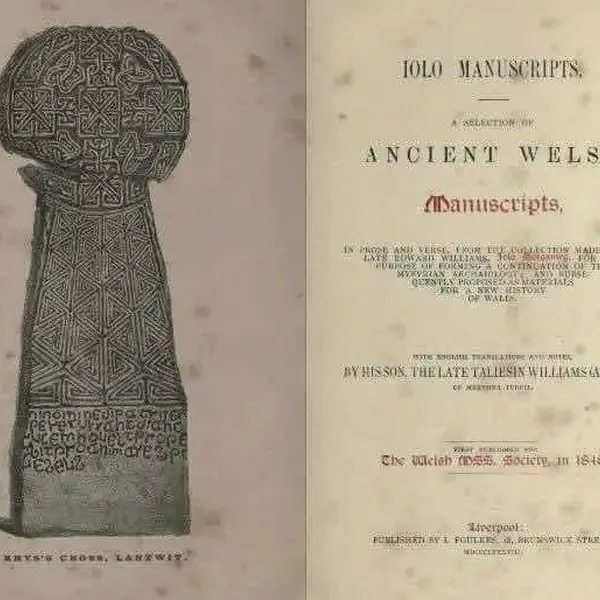
Taliesin Williams, Born
July 09, 1787
Taliesin Williams was a key figure in his own right in the Welsh linguistic and cultural revival of the late 1700s and early 1800s. He undertook his fathers trade, His father was Edward Williams, as a writer.
Iolo Morganwg (or Morgannwg in modern spelling) was the bardic name of Edward Williams (Llancarfan, Glamorgan, Wales 1747-1826), an influential antiquarian, collector and literary forger. The name is Welsh for Ned of Glamorgan.
Iolo was the author of the Druids Prayer or Gorsedd: prayer (Gweddir Derwydd: or Gweddir Orsedd: in Welsh), which is still a staple of the ritual of both gorseddau and Neo-Druidism. His metaphysics outlined a theory of concentric rings of existence, proceeding outward from Annwn (the Otherworld) through Abred and Ceugant to Gwynfyd (purity or Heaven).
Among his writings was Cyfrinach Beirdd: Ynys Prydain, or The Mystery of the Bards of the Isle of Britain (1829), a treatise on Welsh metrics.
After Iolos death Taliesin spent years organizing his fathers collection of manuscripts and binding them into volumes, and brought out an edited selection of them as The Iolo Manuscripts in 1848. In the process he unwittingly perpetuated some of his fathers forgeries, the last of which would not be sorted out by scholars for another century. But despite the doubts and aspersions being cast on his fathers work, Taliesin nevertheless won a prize at the 1838 Abergavenny Eisteddfod for his essay Hynafiaeth ac Awdurdodaeth Coelbren y Beirdd: (Antiquity and Authenticity of the Bardic Alphabet) which he published in 1840.
To Taliesin, it seems Iolo never fessed up to his forgeries, and to his dying day Taliesin Williams continued to accept and argue for the genuineness of his fathers work.